Big Ears Festival No. 10 set a high bar
- Oops!Something went wrong.Please try again later.
- Oops!Something went wrong.Please try again later.
- Oops!Something went wrong.Please try again later.
- Oops!Something went wrong.Please try again later.
The 10th edition of the Big Ears Festival set records in every possible way it can be measured: attendance, number of concerts, diversity of artistic expression, economic impact on the city of Knoxville, and the general air of euphoria in the music press from here to Helsinki.
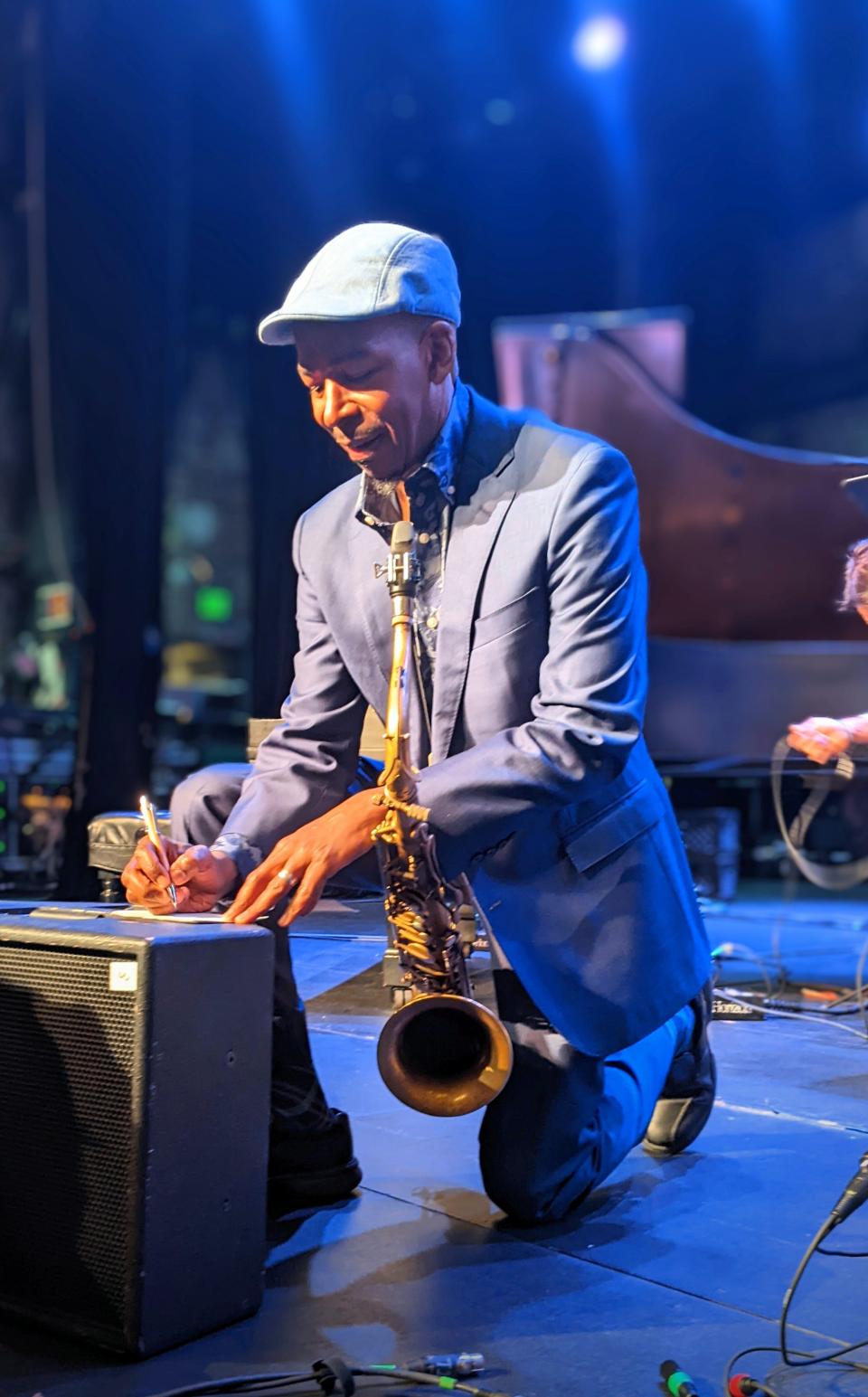
I took my kids to see Lonnie Holley with the Cleveland-based improvisational band Mourning[A]BLKstar; Greg Tardy’s “Pilgrim’s Progress” suite; the phenomenal duo Larry & Joe, who have invented a new genre they call Latingrass; Arooj Aftab and Love in Exile; Trio Imagination; the Bill Frisell Quartet; and the Knoxville Symphony Orchestra with Tessa Lark, the violinist who set Michael Schachter’s “Cycles of Life” on fire!
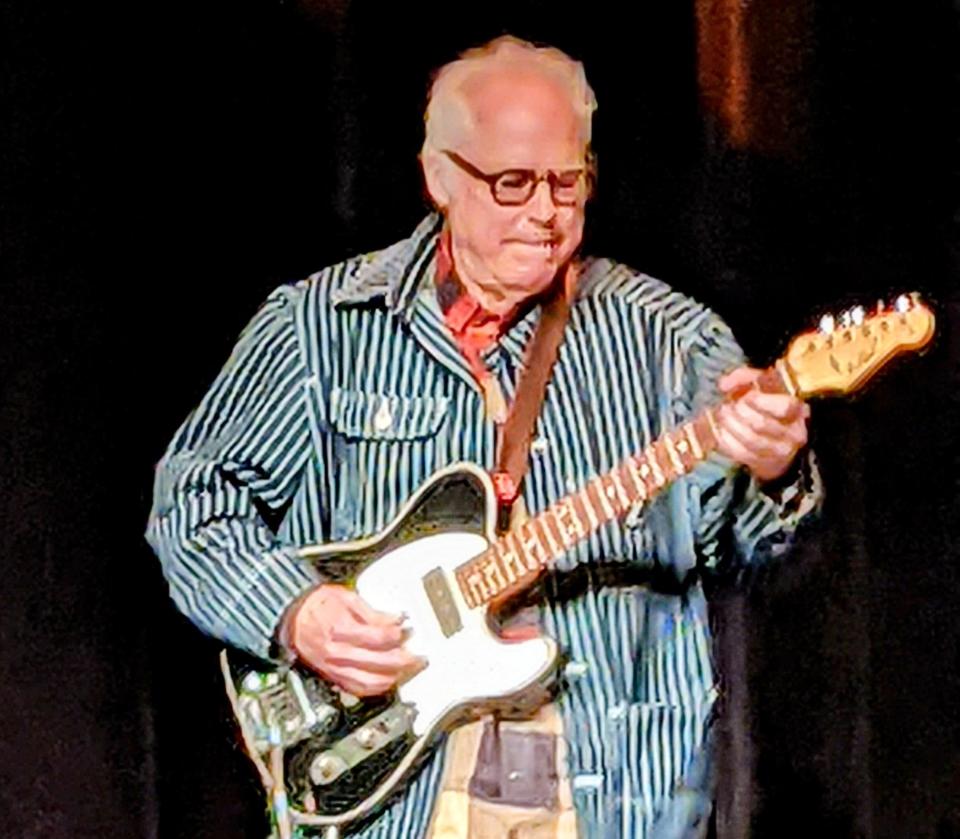
We were in the Mill & Mine, The Point, the Tennessee Theater, the Old City PAC, the Bijou, and St. John's Cathedral.
The amazing thing is that no one else can say they saw the same Big Ears that we saw. And no one can say they saw more than about 10% of what the Festival had to offer. It’s physically impossible.
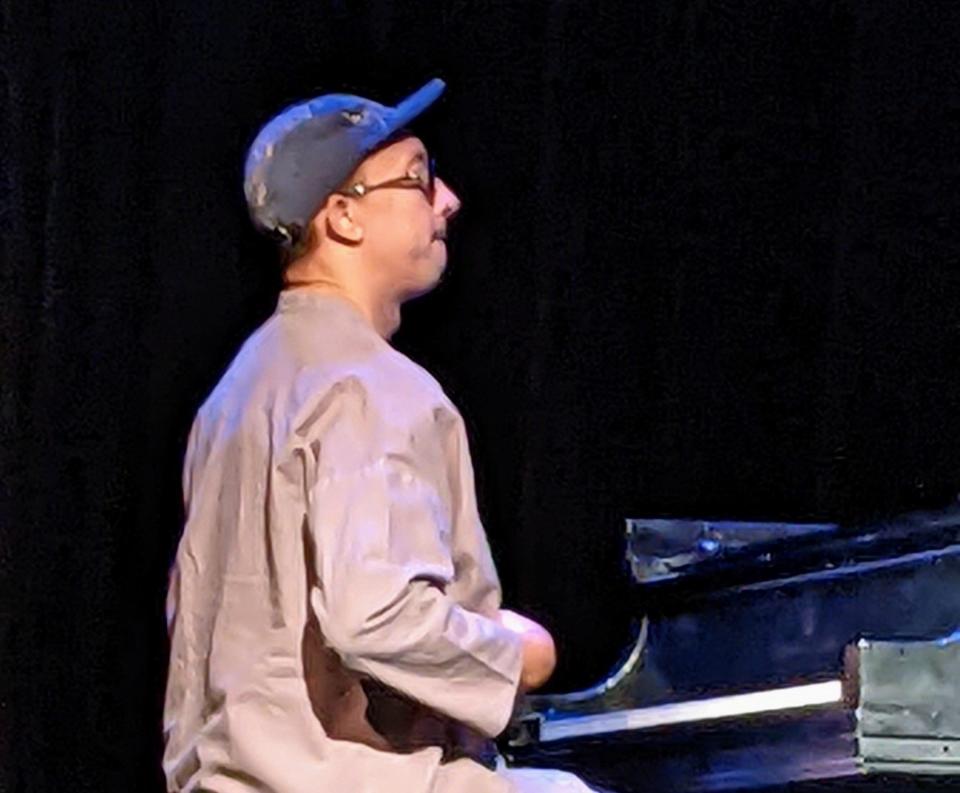
If every concert, artist forum, film, and literary performance at Big Ears was videotaped in its entirety and edited into a single thread, it would take about two months to watch it from start to finish if you stared at the screen for 10 hours a day, seven days a week.
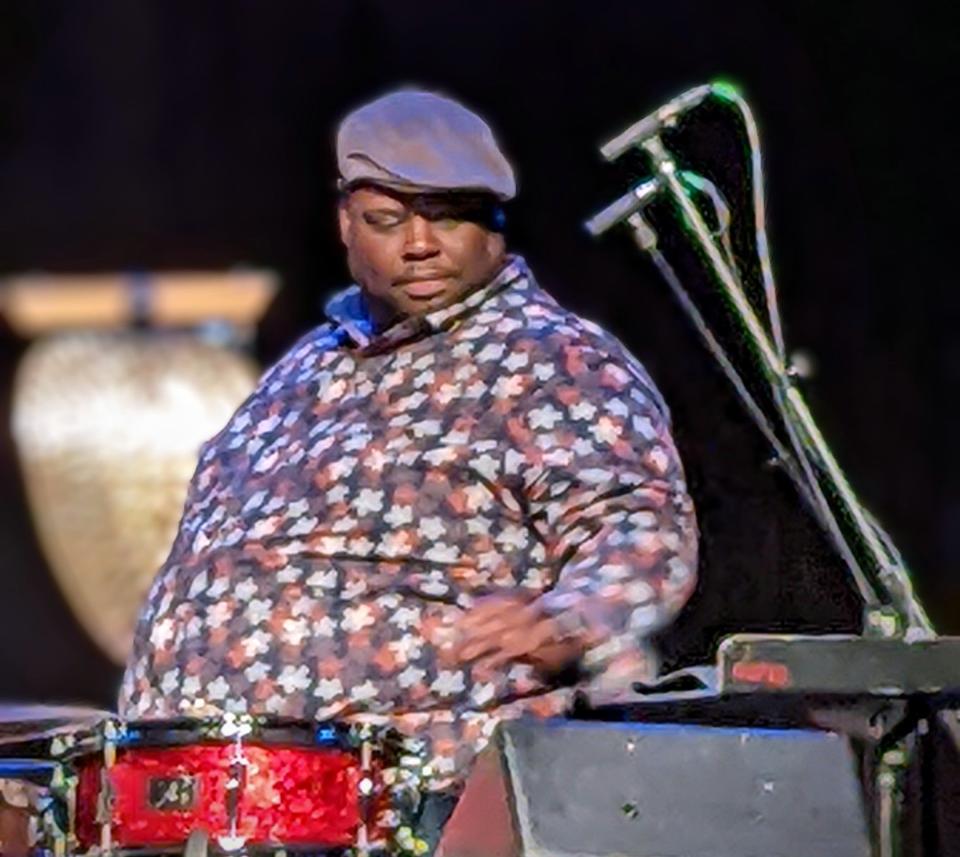
With three kids over four days, I probably set a record myself. And I have to say, nobody ever said a disparaging word to us. On the contrary, we got a lot of “Wow, how wonderful for you to bring your grandkids!” (Uh… they’re my kids, not my grandkids, thank you.)
My only complaint about Big Ears: the lighting is ... regrettable. It was last year too. We fell in love with Arooj Aftab last year and couldn’t wait to see her this year. But the stage was so dark for the three “songs” we stayed for, I left with a headache. Dark hues, too low light levels, no back lighting, no side lighting, no white light. The human forms had no outlines. They just merged with the black background. And it’s intentional. Drives me crazy. I attribute a lot of this aesthetic to the use of LED instruments. There is nothing theatrically beautiful about LED lighting. It’s just hideous. And now incandescent lighting is outlawed. Oh children, vinyl records and incandescent lighting should never have joined the dinosaurs. Can anyone explain to me (a former professional lighting designer) why lighting instruments are visible on stage, and the performers aren’t?
I want to shine light on Greg Tardy, because I think he walks away with the MVP Award for Big Ears 2023.
On Friday, with the Oak Ridge Symphony’s Régulo Stabilito conducting, Greg's 10-piece jazz/classical ensemble, the TenTet, performed his remarkable song suite “Pilgrim’s Progress.” The newly created Old City Performing Arts Center, a former ice factory and construction components warehouse, was standing-room-only at 1 p.m. on Friday for a major jazz statement as Big Ears was just getting up to speed.
Where but Knoxville could such an unlikely thing occur? And occur so brilliantly?
Greg is disarmingly humble, but behind his peaceful façade churns a creative impulse that is relentless, and patient. It’s a force that reflects his spiritual gyroscope, which comes down to a single idea: family. His private family, his church family, and his musical family are all one, and in that, this remarkable composer and performer has a truth to share that is invaluable. You can see it in his smile, his gestures, and in his stage persona. And you can hear it in the music, both the music he writes and the music of other composers as Greg interprets it.
Family is what sets jazz apart from all the other performing arts. Any single jazz musician might perform with more than a dozen different groups in a given year, and as that year plays out, it charts a path of survival much like every other family, struggling to make ends meet, keep the old ones safe, keep the young ones on track, and keep the wolves away from the doors. Then, as spring dawns, something like Big Ears brings the family together for a reunion that makes the struggle worth the effort. It’s a recognition of interconnectedness, the very definition of family. And because Greg values family above everything else, it shows every time he turns toward the microphone with a saxophone that’s as much a part of him as his piercing eyes and his unassuming smile.
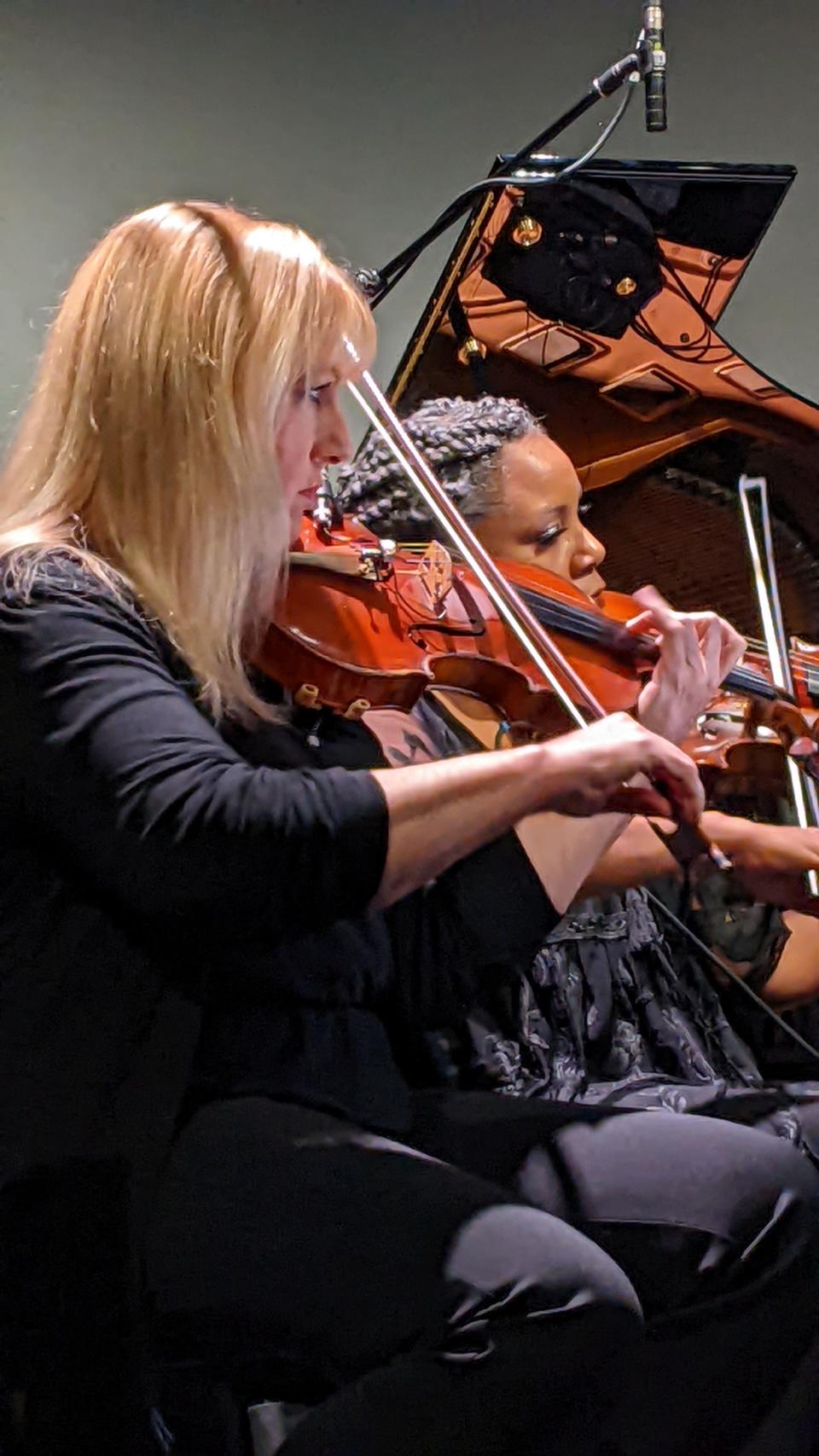
Greg’s family for “Pilgrim’s Progress” included Michael Dease (trombone), Alex Norris (trumpet), Tom Johnson (bass clarinet), Kimberly Simpkins (viola), Karen Kartal (violin), Dave Potter (drums), Sean Conly (bass), Maria Castillo (flute), Taber Gable (piano), Abigail Tardy (narrator), and Stabilito (conductor). Fathers and daughters, husbands and wives, brothers and sisters, questioners and believers, united by improvisation ... this family would turn heads if they walked into any jazz venue on Earth.
The Pilgrim’s story is a sprint from Genesis to Revelations, and Greg’s TenTet pushed and pulled the audience every step of the way, through moments of fury and moments of peace, moments of challenge and moments of triumph. Like Schachter’s “Cycles of Life” on the Festival’s closing night, “Pilgrim’s Progress” was like flying through time, from the opening notes to the last fading embrace. And the audience responded with human thunder.
Just before the KSO, Tessa Lark and “Cycles of Life” lit up The Bijou. Its stage was electrified by the Bill Frisell Quartet and a journey of a different kind, a journey as close to the heart and soul of jazz as anyone could ever hope to experience. When Frisell and Greg walked out from the wings with pianist Gregory Clayton and drummer Johnathan Blake, I looked at my kids’ faces. They didn’t know these four men, this new family, but their eyes were as big as saucers. Then they recognized Greg.
“Dad, the man in the blue suit! That’s the guy from Friday afternoon!” They sensed that something was coming.
It was a tour through the music of “Four,” the Frisell Quartet’s definitive Blue Note album that was released four months ago. Their live performance, like the album, was a mix of new and reworked Frisell compositions which, in some sense, are not compositions at all until they’re played. It’s kind of like four guys sitting around a card table. The dealer throws down a card, and everyone reacts to it together. A lot of the cards in Frisell’s deck are ideas that he compiled during the isolation imposed by the viral panic of 2020-2021. In performance now, and even on vinyl (or however you hear the recordings), these interpretations have a defiant vitality that projects a stunning clarity of vision. It’s like life reinvented. What is a jazz quartet? This is a jazz quartet.
"Dear Old Friend." "Lookout for Hope." "Blues From Before." "Dog on a Roof." "Holiday." Play a Bill Frisell set list, indeed
In the middle of their set, the Quartet paid tribute to the late Ron Miles, a beloved composer, cornetist and trumpeter who passed away in March 2022, with a card from Ron’s deck. In the morning of the day he died, Miles scribbled down the barest notation for a tune. And when he passed, his wife sent the notes to Frisell ... because that’s what families do. The dealer laid that card on the table, and the Quartet brought every loss of the last couple of years into focus. For me, it brought a tear to my eye for Wayne Shorter, because the tune was carried by Greg’s road-worn saxophone.
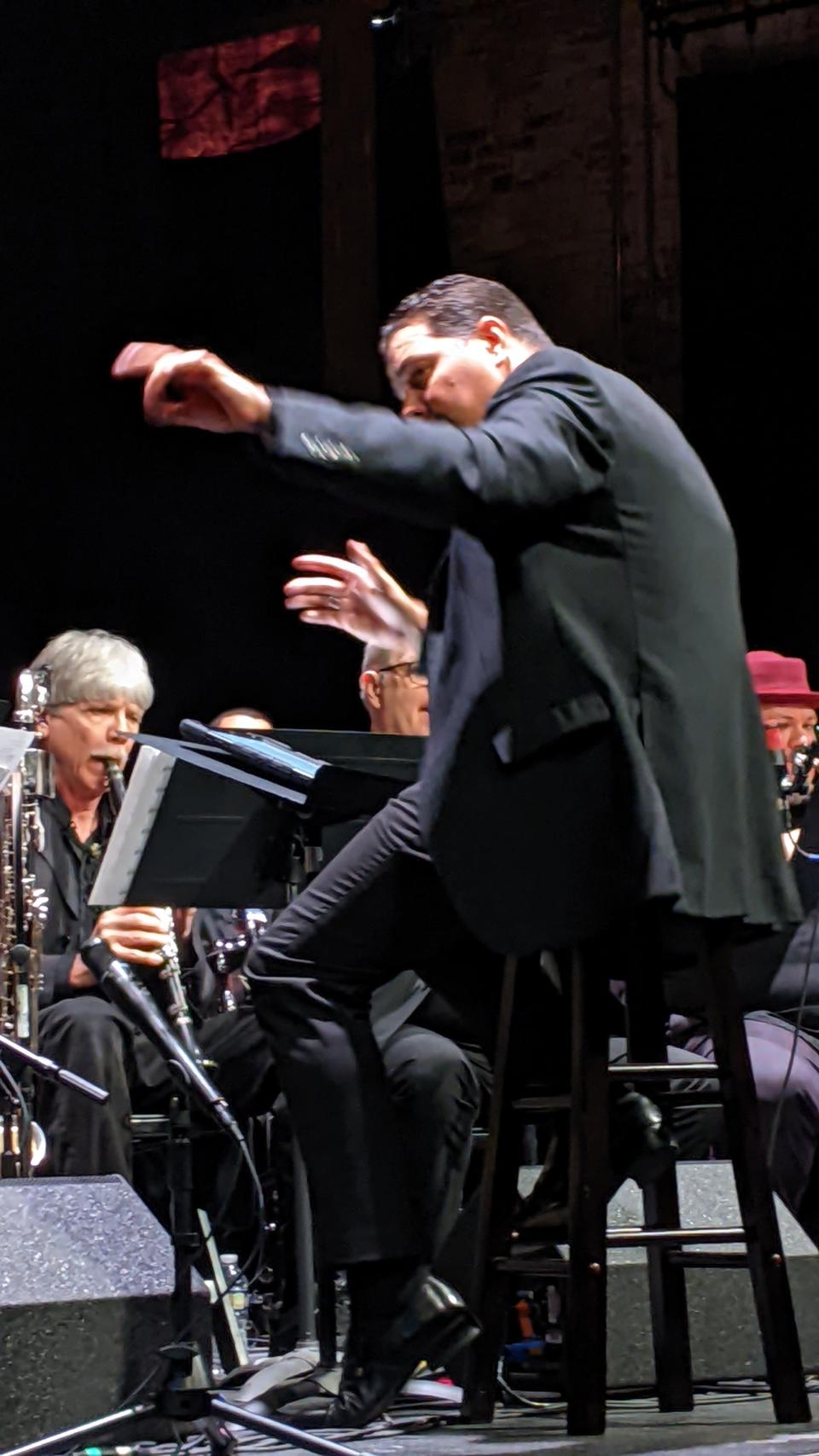
Each member of this incredible Quartet had space to floor the Bijou audience with their super powers. Clichés aside, that’s exactly what they have. Super powers. Frisell may be the most surprising with his, because on stage he looks like a guy waiting at a bus stop, and even when he is ripping a tune to shreds there are no visual signs that the sounds are coming from him. Gerald Clayton is like that too, at the piano with his back to the audience. It lends a subtle anonymity to his perfect pianism. Greg’s powers are muted, in the way Miles Davis and Wayne Shorter’s were. Who needs to be showy when you’re nailin’ it? And then there’s Johnathan Blake. Oh me, oh my, as Lonnie Holley would say. One minute he’s sitting completely still. A drummer, sitting still, meditating! And the next minute, he’s splitting seconds into atoms. He may never say a word on stage, but Johnathan Blake has beautiful stories to tell.
Greg teaches at the University of Tennessee at Knoxville. He was an unheralded star of Big Ears. As I write this on Tuesday, he is getting ready to play with the Knoxville Jazz Orchestra at The Bijou for the live concert debut of “Bird Lives,” John Beasley’s Grammy-winning new arrangements of Charlie Parker classics. It’s the life of a professional musician. This time next month, he will be reunited with the Bill Frisell Quartet in San Francisco. Between now and then, he may have 10 other gigs, receive a couple of invitations to recording sessions, and rewrite a section of “Pilgrim’s Progress.”
Art is long. Life is short. There is no time to waste.
John Job is a longtime Oak Ridge resident and frequent contributor to The Oak Ridger.
This article originally appeared on Oakridger: Big Ears Festival No. 10 set a high bar

